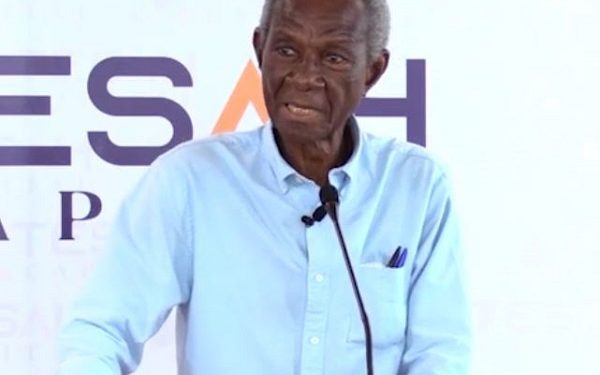The Ghanaian economy is not resilient given it is failure to generate enough reserves, renowned Economist, Dr. Kwame Pianim has said.
“Where the [Ghanaian] economy is now is not pretty” and the environment cannot be described as enabling, Mr. Pianim disclosed at the first IMANI-GIZ Reform Dialogue Series (RDS) on the theme “Ghana’s Macroeconomic Environment: An Enabler or Hammer to Investment?”.
According to him, the monetary policy rate is a key indicator of how the Bank of Ghana perceives the economy, adding, when the Central Bank increases its policy rate, it is indicative of the fact that it is not comfortable with the fiscal stance of the government.
He further said that structural imbalances between expenditure and revenue continue to affect the economy, adding, Ghana needs a cost-benefit analysis on the significant expenditures by the government, citing areas like Free Senior High School (‘Free SHS’).
He questioned the excessive focus of the government on the revenue side of the economic equation with the often touted mantra that Ghanaian citizens are not paying enough taxes.
Instead, he argued that citizens pay different indirect taxes, especially Value aAdded Tax (VAT).
Mr Pianim stressed that the main area of focus for policymakers should be the expenditure side and recommended that government should use quality predictive models and analysis in their economic decision-making.
He finally remarked that “we should not waste the [current] crisis” but instead use it to create a better and sustainable macroeconomic environment.
For his part, Economist, Dr Priscilla Tsumasi Baffour said Ghana’s export basket is not so diversified which exposes the economy to many international shocks such as the ongoing COVID-19 pandemic and Russia-Ukraine War.
She also indicated that the economy accumulates a lot of fiscal deficits which drive the current high public debt [estimated at 80.1% of GDP as of December 2021










Discussion about this post